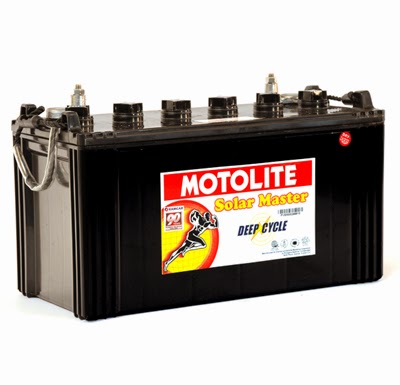?What is the difference between a normal lead-acid car battery and a deep cycle battery
People who have recreational vehicles (RVs) and boats are familiar with deep cycle batteries. These batteries are also common in golf carts and large solar power systems (the sun produces power during the day and the batteries store some of the power for use at night). If you have read the article How Emergency Power Systems Work, then you also know that an alternative to gasoline-powered generators is an inverter powered by one or more deep cycle batteries.
a car's battery is designed to provide a very large amount of current for a short period of time. This surge of current is needed to turn the engine over during starting. Once the engine starts, the alternator provides all the power that the car needs, so a car battery may go through its entire life without ever being drained more than 20 percent of its total capacity. Used in this way, a car battery can last a number of years. To achieve a large amount of current, a car battery uses thin plates in order to increase its surface area.
A deep cycle battery is designed to provide a steady amount of current over a long period of time. A deep cycle battery can provide a surge when needed, but nothing like the surge a car battery can. A deep cycle battery is also designed to be deeply discharged over and over again (something that would ruin a car battery very quickly). To accomplish this, a deep cycle battery uses thicker plates.
A car battery typically has two ratings:
CCA (Cold Cranking Amps) - The number of amps that the battery can produce at 32 degrees F (0 degrees C) for 30 seconds
RC (Reserve Capacity) - The number of minutes that the battery can deliver 25 amps while keeping its voltage above 10.5 volts
Typically, a deep cycle battery will have two or three times the RC of a car battery, but will deliver one-half or three-quarters the CCAs. In addition, a deep cycle battery can withstand several hundred total discharge/recharge cycles, while a car battery is not designed to be totally discharged.


Comments
Post a Comment